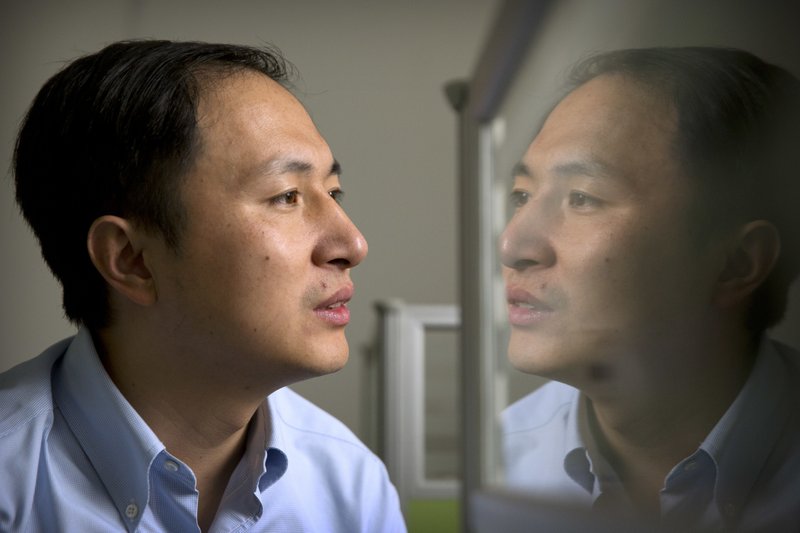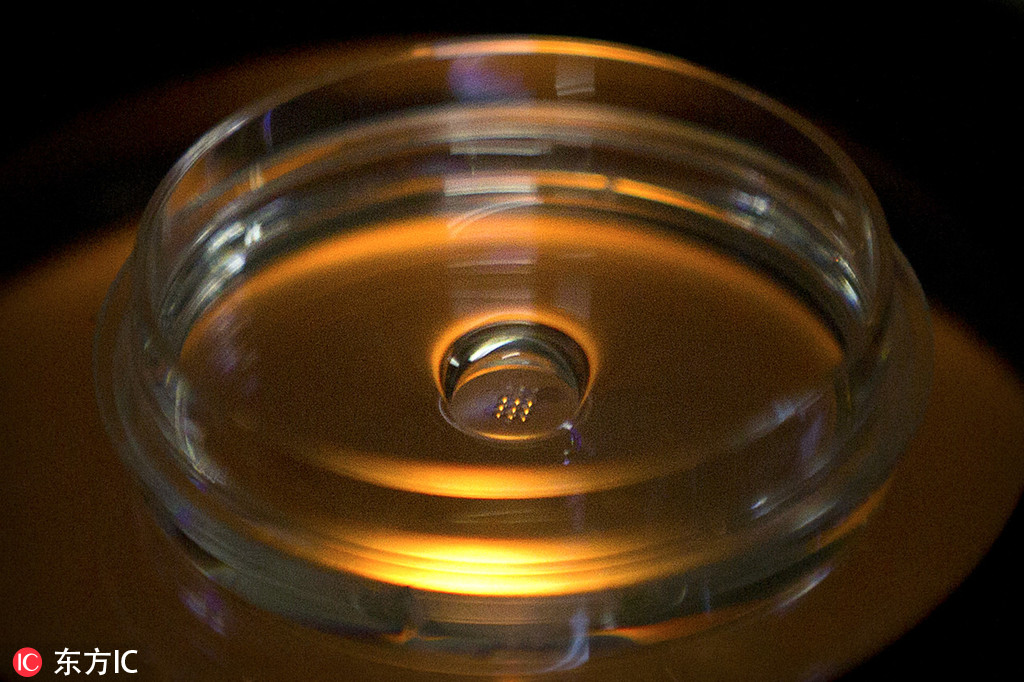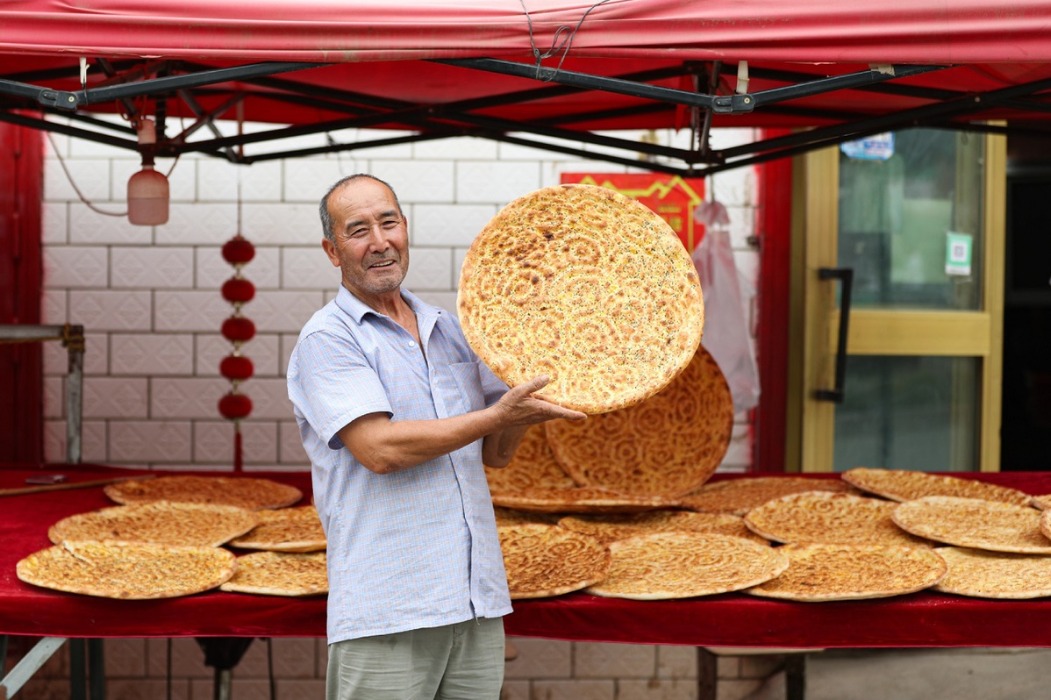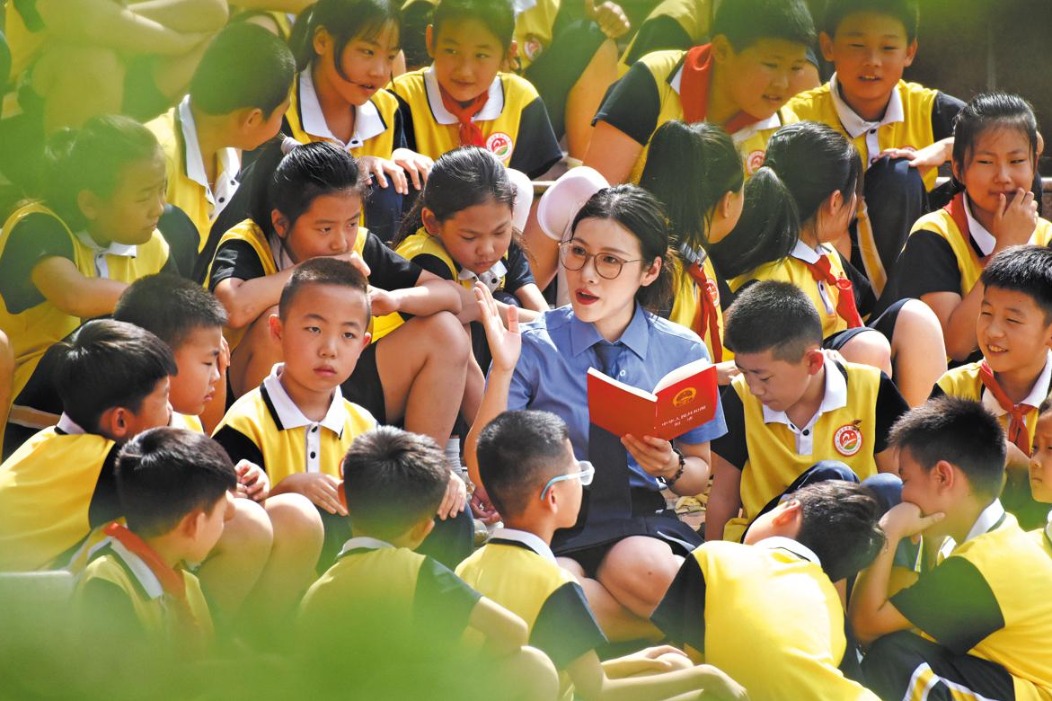Criticism pours in on gene-editing claim


Ethics approval questioned as public awaits response
The audacious move by a Chinese scientist to create the world's first twin babies ostensibly immune to HIV by using gene editing technology continued to generate widespread condemnation in China and abroad on Tuesday, with investigations from various authorities having yet to reach a conclusion.
He Jiankui, a biological researcher in Shenzhen, Guangdong province, announced on Monday that twin girls, Lulu and Nana, were born healthy earlier this month via in-vitro fertilization with gene editing technology that immunized them from being infected with HIV.
He's announcement stirred heated debate among scholars, with many on Tuesday joining the fray to condemn him for ethics flaws, and questioning the very necessity of such a procedure.
A total of 140 Chinese researchers in HIV/AIDS from China and abroad jointly released a signed open letter on Tuesday, condemning the "unethical" research and calling for authorities to take measures to ban the research from continuing.
"We are strongly opposed to conducting research involving genetic modification and editing of healthy fertilized human eggs and embryos unless the safety and effectiveness of the technologies have been proved," the letter said.
"We strongly appeal to authorities to formulate and improve as soon as possible rules in the application of genetic editing technology to human bodies and other biological bodies to ensure the integrity and security of the human species ... and to ensure rational, stable and healthy development of science in China and the world."
Many effective medical interventions are available to prevent babies born to HIV-positive parents from themselves being infected, including highly efficient antiviral drugs. A couple, with an HIV-positive father and healthy mother, can give birth to healthy offspring with existing technologies, so it is not necessary to resort to gene editing, the letter said.
The letter followed a similar open letter signed by more than 120 scholars involved in biological and medical research that was released on Monday afternoon.
Xu Nanping, vice-minister of science and technology, said on Tuesday that the ministry is paying close attention to the case, and urged related parties to launch thorough investigations and disclose results to the public.
The Enforcement of Scientific Ethic Committee of the Academic Divisions of the Chinese Academy of Sciences said on Tuesday that it is also paying close attention to the issue and is firmly against any clinical application of gene editing of human embryos by anyone or any organization in circumstances relying on immature theories and technologies

The committee said it would like to cooperate with authorities in the investigation.
The China Union of Life Science Societies said on Tuesday that He's research has caused serious damage to the reputation of the scientific discipline in China.
"We are firmly opposed to it and suggest that a multi-departmental investigation team be established immediately to conduct a serious investigation into the organizations and people involved, and mete out punishments to those responsible," it said in a statement.
The National Health Commission ordered on Monday night its Guangdong branch to investigate the incident. Southern University of Science and Technology, where He works, denied any knowledge of He's research and said a probe is underway.
The Associated Press reported on Tuesday that Rice University in the United States said it will investigate the involvement of physics professor Michael Deem, who worked with He on the project in China.
"Regardless of where it was conducted, this work as described in press reports violates scientific conduct guidelines and is inconsistent with ethical norms of the scientific community and Rice University," the school said in a statement. Such research on gene editing is banned in the US, the school added.
Suspicious ethics approval
Many experts, including Wu Zunyou, chief epidemiologist at the Chinese Center for Disease Control and Prevention, were shocked and wondered how He's research project could have passed a preliminary ethics inspection before being carried out.
"It is horrible and beyond belief, if it is not fake news," he said. "No organization's ethics inspection committee would give a nod to such research."
He Jiankui sought and received medical ethics approval for his project from Shenzhen Harmonicare Women and Children's Hospital, AP reported on Monday, and an approval document from the hospital has been released online.
However, on Tuesday the hospital denied any involvement in the research and said it suspected the document was fabricated. The hospital had reported the case to the police, it said in a statement on its website.
Cheng Zhen, general manager of the hospital, told local media on Tuesday that all the members of its ethics committee denied having signed their names on the report, although their signatures are similar to those on the report.

He's response expected
He has remained silent over the past two days after breaking the news.
He is expected to give an academic speech on Wednesday at the Second International Summit on Human Genome Editing in Hong Kong.
Professor David Baltimore, chair of the organizing committee of the summit, said at a news conference on Tuesday that the committee may release a report on its opinion about gene editing.
"The committee is certainly open to gene editing applications to human medicine, absolutely. Open means that we are going to decide what we think is appropriate, and when it's appropriate to move ahead," he said.
Baltimore said he believes He will attend the meeting and give a speech as expected, but he is uncertain about what He will say.
He took part in postdoctoral studies at Stanford University before he returned to China in 2012. He was a well-known researcher in his area and had stakes in several life science companies, according to media reports.
"I understand my work will be controversial, but I believe families need technology, and I'm willing to take the criticism," he said in video footage released on Monday morning on YouTube.
"We believe ethics are on our side of history," he said.
Yang Zekun in Hong Kong contributed to this story.





































